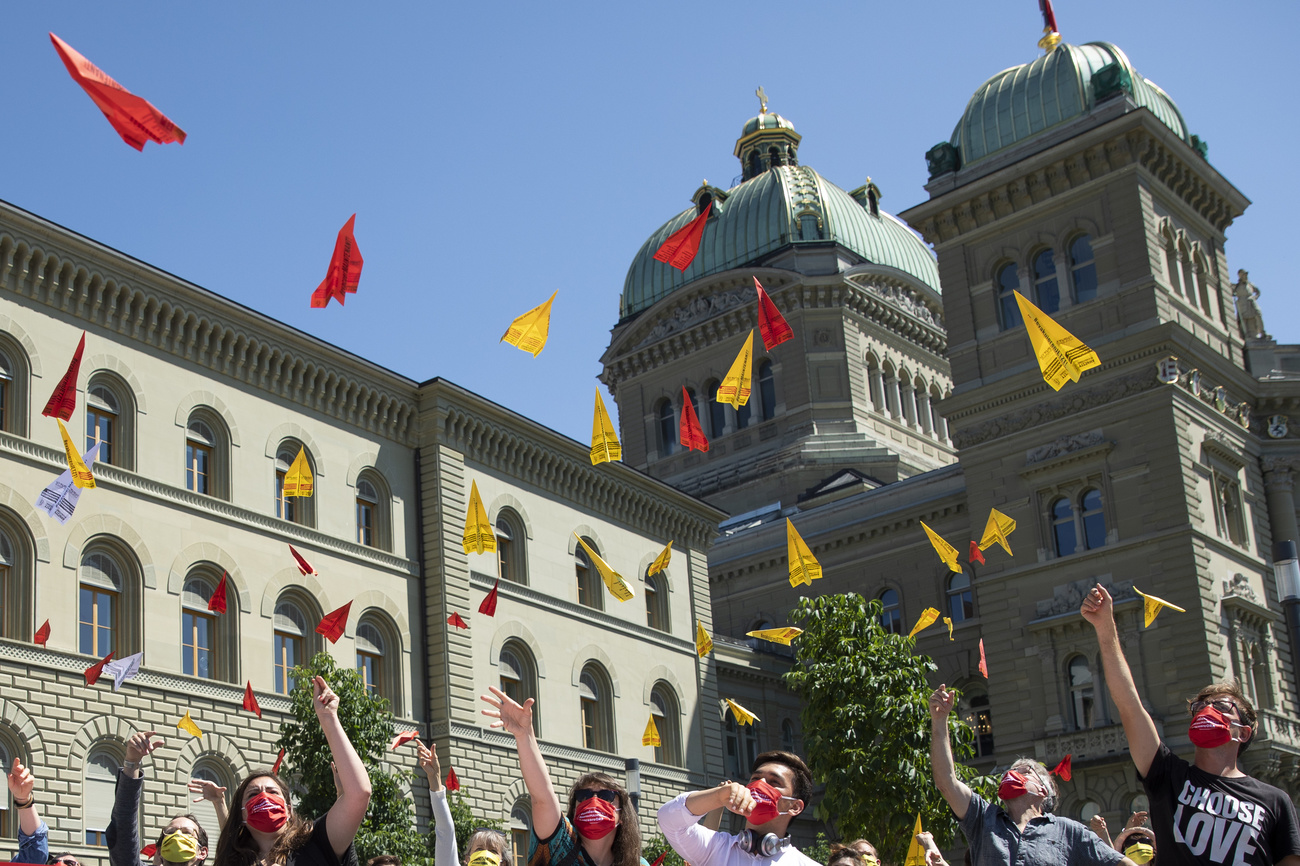
Campaigners push Swiss to take in more refugees

Over 50,000 people have urged the Swiss government to accept more refugees currently stranded in Greek island camps. They also demand a reform of the European asylum system.
Three separate petitions were handed to the authorities in Bern on Tuesday by the NGOs Amnesty International, Evacuate Now and Migrationscharta.
The groups say things continue to worsen in refugee camps on Greek islands, where large influxes of refugees have added to cramped living spaces, dirty conditions, the insufficient availability of healthcare, and sometimes violence.
The petitions follow a similar call in April for Switzerland to take in more refugees, and an announcement in May that 23 unaccompanied minors – from Afghanistan and the Democratic Republic of the Congo – had been accepted by the country.
And in February this year, Switzerland signed an agreement with Greece to help the country with its refugee situation, for example by sending experts to help identify and register asylum seekers, implement new asylum procedures, or for border surveillance and management.
Alexandra Karle, the head of the Swiss chapter of Amnesty International, said however on Tuesday that this was “too weak a response to the need to protect thousands of people [in the Greek camps]. Switzerland is just applying the Dublin Regulation – it’s not enough”.
The so-called Dublin Regulation includes the European Union’s 27 members, as well as Liechtenstein, Norway, Iceland and Switzerland. It determines which member state is responsible for processing an asylum claim so that an application is examined just once within the Dublin area. A key goal is to ensure that an application is actually examined, and that asylum-seekers cannot be shifted from one country to another without receiving a proper asylum procedure. Another aim is to prevent asylum-seekers from migrating on to other member states and lodging an asylum claim multiple times.
Indeed, Switzerland applies more strictly than most countries the Dublin regulation by sending back asylum seekers to the country in which they first made their request.
As such, the NGOs have also called on the government to lead efforts to reform the system; what’s needed is a Europe-wide programme of refugee allocation in which all countries would act in solidarity, they say.
There are 70.8 million forcibly displaced individualsExternal link worldwide, according to the UN refugee agency. Greece currently hosts some 110,000.
In Switzerland meanwhile, 14,269 asylum applications were made in 2019External link, a 6.5% decrease relative to the previous year, according to official figures. Migration authorities expect to process about 15,000 new asylum applications in 2020.

In compliance with the JTI standards
More: SWI swissinfo.ch certified by the Journalism Trust Initiative






























You can find an overview of ongoing debates with our journalists here . Please join us!
If you want to start a conversation about a topic raised in this article or want to report factual errors, email us at english@swissinfo.ch.